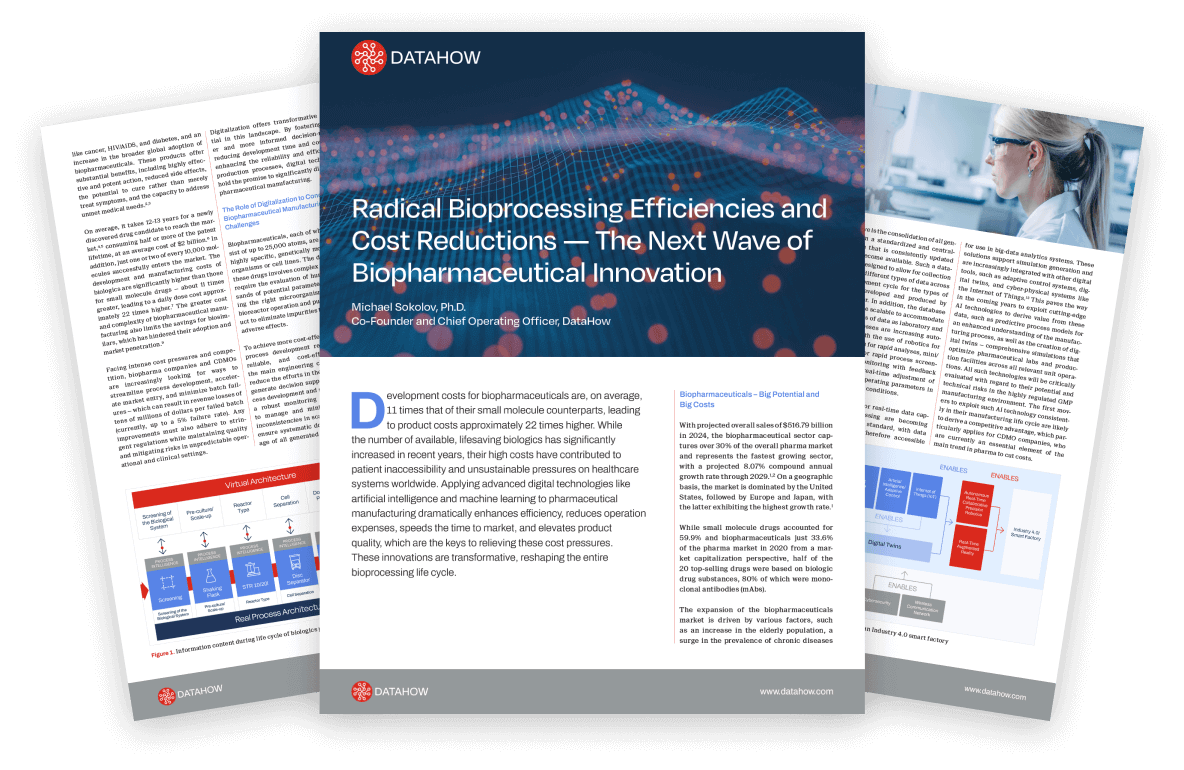Radical Bioprocessing Efficiencies and Cost Reductions—The Next Wave of Biopharmaceutical Innovation

Digital technologies are revolutionizing biopharmaceutical processing by improving efficiency, reducing costs, and enhancing product quality
While the number of available, life-saving biologics has significantly increased in recent years, their high costs have made them inaccessible to many patients and have placed unsustainable pressures on healthcare systems worldwide. Compared with their small molecule counterparts, development costs for biopharmaceuticals are, on average, 11 times as high, leading to product costs approximately 22 times higher.
Applying advanced digital technologies like artificial intelligence (AI), hybrid modeling, and digital twins to pharmaceutical manufacturing is key to relieving these cost pressures through dramatically enhanced efficiency, reduced operation expenses, faster time to market, and elevated product quality. With these goals in mind, many organizations have had successes and challenges as they have started their digital transformation. What can we learn from these pioneering organizations’ experiences?
In a new Pharma’s Almanac article, Michael Sokolov, Ph.D., Co-Founder and Chief Operating Officer of DataHow, shares his insights from extensive research and in-depth interviews with executives from the industry’s largest organizations and provides an overview of:
•What’s limiting biopharmaceuticals’ promise of improving patient health worldwide?
• The role of digitalization in conquering biopharmaceutical manufacturing challenges
• Key technologies that will transform bioprocessing
• Organizational challenges and strategies for digital transformation
